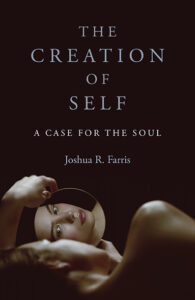What do you want to hear on your deathbed?
Do you want to hear: you will live on in the cloud or you will experience the presence of God?
We are hearing of reports that secularism is on the rise. Indeed, there have even been reports that secularist views of consciousness have overtaken older views of consciousness that required God and the soul as a part of the bedrock foundations of our world. And, yet the reports are missing one important fact, namely that the afterlife is left unaccounted for. Similar, in fact, to the way in which the cosmological origins of both consciousness and the universe are left unaccounted for.
Being religious myself, and a minister as well as teacher of theology, the reports of growing secularism across ethics, social issues, and politics are disheartening. Undoubtedly, these reports do not give the final word on the truth of the matter, but they do show a drift in popular consensus. Pew Reports tell us quite clearly that we are experiencing a significant decline in religious belief as well as religious practice. This comes after numerous and unsettling Church closings during 2020 alongside progressive and secularist proposals that seek to replace good old moral teachings including a traditional conception of marriage (and its concomitant belief in traditional gender and sexuality). More and more appear to be identifying with the ‘unafiliated’ and, worse, atheistic (or the outright rejection of religion altogether having any relevance to what we can know is true). What does this mean? It means that we are seeing an ongoing decay of values that once characterized society and reflected good ole’ Christian teaching. This is concerning.
Of course we are hearing that God is not needed to explain either origins of the cosmos or the origins of consciousness. The fundamentalist New Atheists have been sounding this gong for some time, but they have and continue to be met with mixed responses. Science, it is purported, has the primary goal of carving out a secular picture of the world without God. Philosopher Owen Flanagan argues just this when he says: “desouling is the primary operation of the scientific image.” Now we are hearing of others who come from more traditionalist backgrounds sounding a similar gong that we no longer need God. Philip Goff, practicing Anglican yet a professed agnostic, has been popular in this respect, arguing that we neither need a soul or God to make sense of the universe’s origins let alone the origins of consciousness. 
But one thing these proponents of a no God view of the universe’s origins and consciousness origins can’t offer is a good explanation for where it is that we will be when we die. Presumably, along with our decaying body so will we be. That’s it. End of story. What else is there?
What message of hope do proponents of secularism actually have to offer? Not much. Sure they might offer to the person on the deathbed: “Your pain will be over soon.” Maybe someday in the distant future, they will promise something akin to traditional views of the afterlife. We are already hearing of these sorts of prospects through technological means of uploading consciousness—as wild as that may sound. But, that, of course, begs the question once again as to the nature of consciousness and if it is something that can be stored to the metaphorical ‘cloud’ along with our search history. But, even then, its dubious (arguably impossible) that they will be your memories or memories that you could continue experiencing in a different state.
But traditional religion offers something better. Christianity offers a different message of hope. Christianity tells us that you, Christian, will be resurrected from the dead. And, until then, you will be in the presence of God after the demise of your body. But of course, this presumes a different origin story. It is predicated upon the view that you are something like a soul that was created by God. It presumes that your existence is more than simply a stored memory that someone could access at will from her laptop.
The message of hope, then, is something quite tangible. Something the minister can say to you on your deathbed: “You will be in the presence of God soon, and I can’t wait to see you again.”
— Joshua R. Farris, Rev., Ph.D., Humboldt Experienced Research Fellow (Ruhr Universitãt Bochum) and Priest of New Streams Anglican Church (Birmingham, AL.). Author of The Creation of Self
